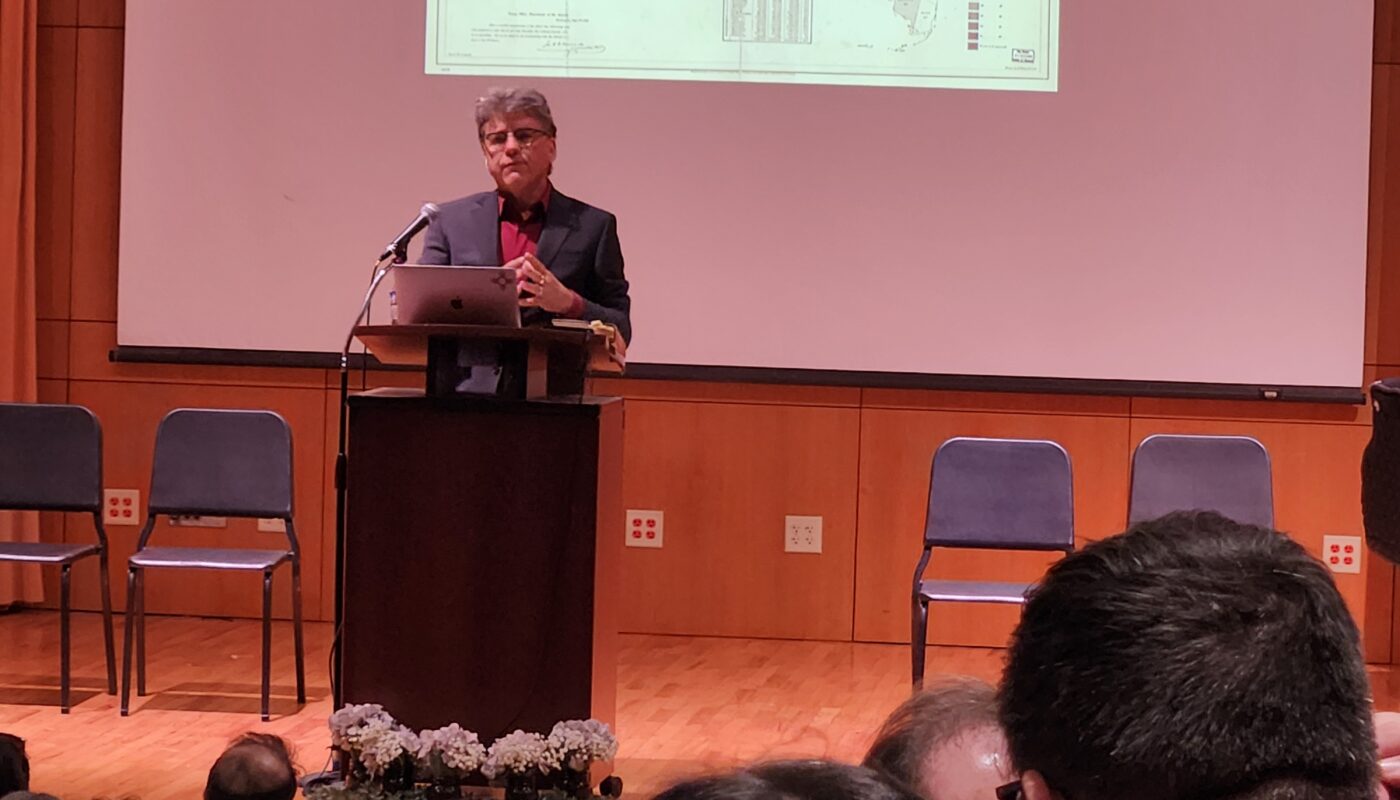The university welcomed the 2023 Pulitzer Prize-winner in the history category, Jefferson Cowie, for the 16th installment of the Mary Catherine Gerhold lecture series in the humanities on October 16..

Cowie, whose latest book, “Freedom’s Dominion: A Saga of White Resistance to Federal Power,” won him the Pulitzer, had published three earlier books on the history of social class and the working class in the Americas.
“I began my career as a labor historian,” said Cowie at the start of the Q&A held at the Bridge of Learning before the evening’s lecture. “[That includes] the history of the workforce in a variety of ways, people who are in unions, who aren’t in unions, people who have been enslaved, people who have been free workers and the whole history of how the workforce developed.”
“What that includes is questions of class, of how a republic such as ours sustains itself in the political economy of inequality: there are rich, there are poor, and there are middle class,” said Cowie of his earlier works on how class interacts with American political values. “So that was the guiding principle of how the culture of politics worked as it was grafted onto a sort of contradiction in a way. A democracy on one hand, but a democracy of inequality.”
“Freedom’s Dominion” serves as a natural continuation of Cowie’s previous works, and offers a new insight into how race and origin interact with class and politics.
The book takes place in Barbour County, Alabama, an area that prospered during slavery for the white elite, and largely felt an impediment of the “freedoms” of its white population upon the advents of emancipation and civil rights acts.
The question of freedom, of what it means for every person to be “free,” is a question still felt strongly today, in an age of increasingly partisan politics.

“The thing I kept tripping across was the question of race and the question of American ideology…I was a big fan of freedom, and began to realize that other people around me did not share the same sensibility of what this meant,” said Cowie.
“In fact, some people had a very opposite idea of freedom than what I had, and that put me in a position of wondering, what is this core value that we all seem to share, but don’t have a common vision for? In fact, some of the people who advocated freedom, I was afraid of, I found them scary.” said Cowie.
The question of “freedom” becomes Cowie’s main focus explored throughout the book. He argues that freedom for one does not mean freedom for all, and what the future of liberation and true equality means for a postcolonial nation built by the labor of the enslaved and working classes.
“ ‘Freedom’s Dominion’ is a story of rough continuity, recurring conflict, and ideological regeneration across time in one place. In Barbour County, freedom served as an ideological scaffolding that supported most every form of domination…Indian land dispossession and removal, mob political violence, lynching, convict labor, Jim Crow, resistance to school integration and the fight against voting rights,” Cowie wrote in the book’s introduction.
“Whether popular wisdom emphasized the social, political or economic dimensions of white freedom, the patriarchal masculinity inherent in what [Orlando] Patterson calls the ‘freedom to limit the freedom of others’ remained constant and powerful. It still does,” said Cowie.
While Cowie hones in on this historical hotspot of civil rights movements as well as extreme past racial prejudices, he connects his past works on the working class by reflecting on the role of the federal government in aiding the oppressed in Barbour County, and places like it.
When considering the role of how “freedom” in the American psyche, as well as the fight for many oppressed peoples to gain full rights as citizens, has played in politics and class struggles, Cowie examines the clear role the federal government has played both in protecting its citizens, while also ignoring them.
“As Joe Strummer of The Clash used to say, ‘the future remains unwritten,’” said Cowie. But, as he asserts in the book’s final lines: “The solution is to change the narrative clearly and aggressively, to commit to a bright, sharp, militant defense of the one single, unambiguous thing that federal government should do: defend the civil and political rights on the local level for all people– cries of freedom to the contrary be damned.”

